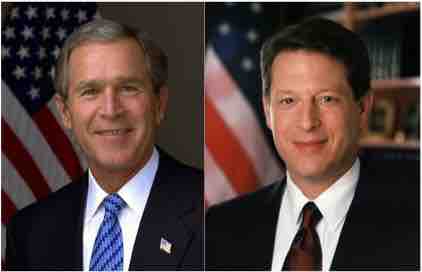While identifying with and believing strongly in a particular party or political ideology can be important in explaining why and how people vote, these factors seldom decide elections alone. A candidate's image and her position on issues are also very important, particularly when independents and undecided voters hold the balance.
Partisan Dealignment
Party identities become less important when voters base their decisions on short-term, election-specific factors, such as the leadership qualities of a candidate. This is often called a partisan dealignment. A partisan dealignment may be occurring today, as more people are identifying as independents and more voters choose based on personal traits of candidates, such as honesty. Mass media can contribute to partisan dealignment by focusing attention on candidates' personalities and scandals, which are short-term factors that can influence vote choice.
Candidates' Images and Voting
Voters often vote based on candidates' images or likeability . Candidate images consists of the background, experiences, and personal qualities of people running for elected office. Campaigns strive to present an image of their candidate that fits the public's expectations of the office sought, especially in comparison with the opponent, who is often portrayed as less qualified. Voters expect the president to have leadership skills and to be principled, decisive, and honest. Other qualities, such as military service and compassion, may be deemed by the public and the media to be important as well. Candidate images are not entirely malleable. Age, gender, race, and military service cannot be changed easily, but they can be manipulated by selective accounting and shrewd presentation of the facts. Images are easiest to create early in a campaign when many people may not know much about a candidate. The public acceptance of a candidate's possible images tends to depend on the media's depictions. Oftentimes, voters will make decisions about who to vote for based on their perception of a specific candidate's personality, leadership traits, or family values.

Candidate Image
The media's depictions of presidential candidates Republican George W. Bush and Democrat Al Gore during the 2000 presidential election influenced public perceptions. Bush was depicted as being unintelligent by news organizations that compiled lists of his gaffes and malapropisms. Gore was construed as being dishonest for allegedly claiming that he invented the Internet. When people decide to vote based on candidates rather than party identification or political ideology, candidate image can be very important.